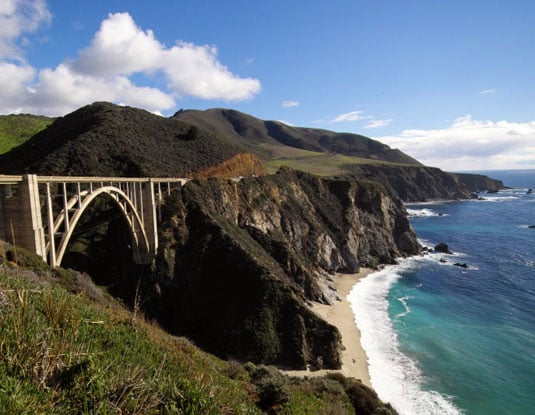Coastal Division
Phone: (805) 706-3303
Address:
4115 Broad Street, Suite B-10
San Luis Obispo, CA 93401
Overview
From the beaches of Santa Cruz to the majesty that is Hearst Castle, from the quaint streets of Solvang to the national pride that is the Ronald Reagan Presidential Library, the CHP's Coastal Division includes some of the most familiar scenes in the United States. The Central Coast's 325-mile landscape on the Pacific Ocean also defines the boundary of Coastal Division's area of responsibility. From the seasonal rain and fog to the summertime traffic influx, Coastal Division's transportation system presents many difficult and ever-changing traffic safety issues. These challenges are met daily by Coastal Division's 11 Area offices, one resident post, two commercial vehicle inspection facilities and three communication/dispatch centers. These facilities contain nearly 700 uniformed and non-uniformed employees who share a unified commitment: enforcing safety laws to save lives, servicing the motoring public, and to provide security to state employees and property.
While the patrol officer remains the foundation of the CHP, additional support from various units within Coastal Division augment the CHP's life-saving mission. They are the Commercial Vehicle Unit, Motor Carrier Unit, Investigative Services Unit, Air Operations Unit, Multidisciplinary Accident Investigation Team (MAIT), Recruiting, and Public Affairs. These units ensure the safe and efficient operation of commercial and regulated vehicles, recover stolen vehicles and apprehend those responsible for the thefts, provide ongoing education and training of CHP personnel, and implementation of homeland security measures. In addition to airborne traffic enforcement and management, Air Operations provides assistance with search and rescue, criminal surveillance, pursuit intervention, aerial photography, blood and organ transportation, homeland security, and emergency transportation of personnel and equipment. The MAIT Unit conducts in-depth investigations and analyses of major traffic collisions using the physics of collision analysis and reconstruction. The Recruitment Program actively promotes the philosophy that the vitality of the CHP depends upon the successful recruitment of qualified personnel. Finally, public affairs is responsible for developing, coordinating, educating and assessing the impact of traffic safety and outreach programs and assisting the CHP in evaluating public perception of departmental activities.
More Than a Career | Join the CHP Family
Are you looking for a way to make a positive difference in your community as a CHP Officer or Public Safety Dispatcher? You can contact Officer Jordan Richards or Officer Chance Chapman at CHPCoastalRecruitment@chp.ca.gov with questions regarding a career with the California Highway Patrol or go to chpmadeformore.com and apply today.
